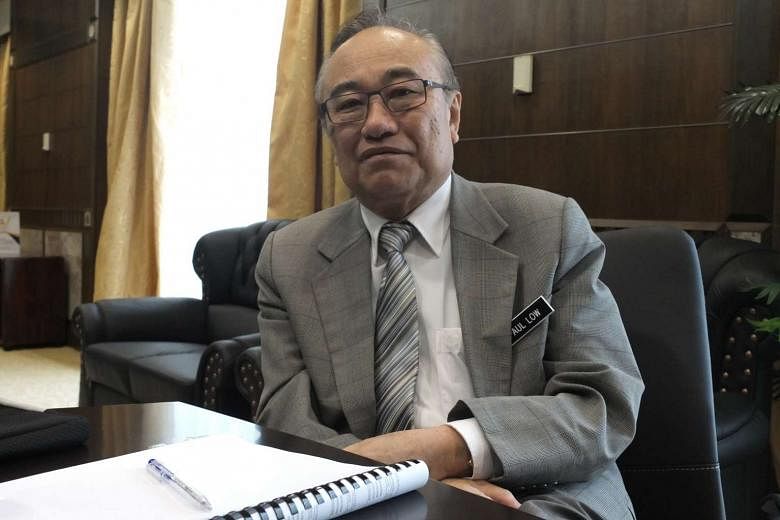A Cabinet minister and the chief of Malaysia's Election Commission (EC) have lent their voices to growing calls for laws on election funding, in the wake of a controversial US$700 million (S$960 million) donation to Prime Minister Najib Razak from Middle Eastern sources.
Malaysia must regulate political financing to ensure transparency and ban foreign funding, Datuk Paul Low, a Minister in the Prime Minister's Department, said yesterday. There are no such laws now.
"All political donations must not be given into accounts of individuals but only into accounts of the political party and all donors must be publicly disclosed," Mr Low was quoted as saying in a speech to the Malaysian Institute of Chartered Secretaries and Administrators.
His sentiments were echoed by EC chairman Abdul Aziz Yusof, who called for the enactment of laws that require political parties to declare their sources of funding.
"Political parties must agree to reveal who the donors are, how much they get, local or overseas," he told news website Malay Mail Online.
Their comments come as public unhappiness continued to swirl over the massive fund transfer to Datuk Seri Najib's personal bank accounts by unnamed Middle Eastern sources.
Critics and opposition politicians say a donation could still be considered as "gratification", or corruption, under the law. Overseas funding also raises serious concerns, such as the possibility of foreign interest groups buying influence in the government, they add.
The US$700 million controversy - first exposed in a Wall Street Journal (WSJ) report last month - has led to both Mr Najib and the opposition challenging each other to reveal the sources of their political funding.
Mr Najib's lawyer yesterday said they would seek a second opinion to decide what legal action to take against the WSJ, after the Malaysian Anti-Corruption Commission announced on Monday that the money did not come from debt-laden state investor 1Malaysia Development Berhad (1MDB), as the WSJ alleged.
The 1MDB saga has led to the sacking of deputy prime minister Muhyiddin Yassin and a Cabinet reshuffle, as well as the suspension of two publications that reported extensively on 1MDB's alleged financial mismanagement.
Newly appointed Communications and Multimedia Minister Salleh Said Keruak defended the donation, saying "there is no law that says one can't collect money for political purposes".
The Star daily yesterday reported him as saying that the government is also mulling over a new law to require the registration of online news portals, which are usually more vocal against the government.
The Malaysian authorities have already blocked whistleblower website Sarawak Report, whose founder Clare Rewcastle-Brown was reported as saying yesterday that she was being followed and photographed in London, where she lives.
She told The Independent that a Chinese-Malaysian looking man was "obviously photographing" her in Hyde Park, where she was meeting a former Malaysian official on holiday. Ms Brown said she "confronted him and he ran away".
"I have had to put in police reports that I have been stalked and followed," she added.
Separately, Swiss prosecutors are looking into the possibility that Swiss banks may have broken the law in dealing with 1MDB funds, according to a statement by Switzerland-based nature non-governmental organisation Bruno Manser Fonds (BMF). The BMF, a critic of former Sarawak chief minister Taib Mahmud, said it had lodged complaints under criminal law against the banks for alleged money-laundering and other offences.

